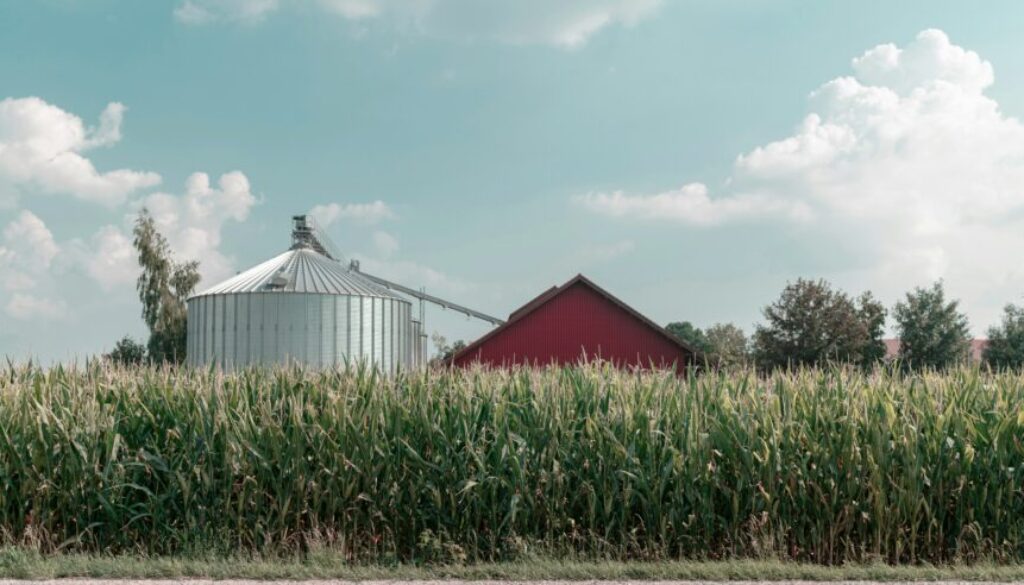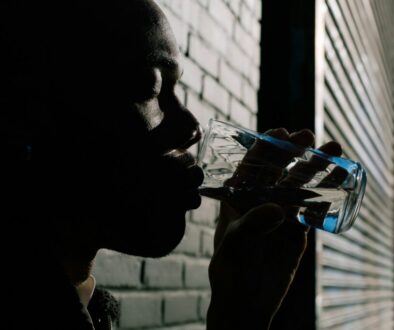A battle in rural Midwest as farmers fight carbon capture pipeline
By Nina Elkadi
Kathy Stockdale and her husband have spent almost 50 years working the land in central Iowa. As a family farmer raising corn and soybeans, Stockdale knows how to deal with harsh weather, poor crop prices, and an array of other challenges that come with making a living in agriculture.
But the operation she has spent a lifetime cultivating now faces a threat unlike any Stockdale has previously faced: Developers are planning to carve through her property with a pipeline carrying hazardous CO2 from ethanol plants, and there is little she can do to stop them.
The pipeline would run a mere 700 feet from Stockdale’s front doorstep and would create a barrier between the home she shares with her husband and the nearby home where her son lives. The farm’s soils and wetlands would be forever altered by the pipeline intrusion, and if the pipeline were to rupture, the damage could be catastrophic, Stockdale fears.
“It consumes your thoughts. You don’t sleep. You ask any of the landowners who have been fighting this, it’s been hard, it’s been stressful,” she said.
Multi-state opposition
The Stockdales are among many farm families in Iowa and four other Midwestern states fighting to kill the pipeline, which was proposed three years ago by Summit Carbon Solutions (SCS) as the “world’s largest carbon capture and storage project.” SCS had initially planned to start operating the 2,500-mile pipeline network, dubbed the Midwest Carbon Express, this year. Opposition across the rural Midwest has delayed the project, but approval by Iowa officials late last month has breathed new life into the undertaking.
SCS says its pipeline project would allow for the mitigation of 10 million tons of carbon dioxide annually, roughly equal to taking two million cars off the road each year. Along with Iowa, the proposed route would run through South Dakota, Nebraska, Minnesota and North Dakota, transporting CO2 generated at more than 50 ethanol plants. The captured carbon dioxide would be “permanently and safely stored deep underground” at a site in North Dakota, according to SCS.
The $5.5 billion project is “the most impactful development for the biofuels industry and Midwestern agriculture in decades,” according to a press statement by Bruce Rastetter, the CEO of SCS parent company Summit Agricultural Solutions.
Funding for the project is being provided by the agricultural equipment manufacturer John Deere, ethanol plants, and other private investors. Rich federal tax incentives and subsidies have been driving growth in corn ethanol production and the entrepreneurial interest in the pipelines.
Along with Iowa’s green light, a measure that could speed the pipeline’s approval in South Dakota is set to go before voters there as a ballot item in the Nov. 5 general election. In North Dakota, where Gov. Doug Burgum has announced his support for the project, he and two other members of a state committee are scheduled to vote on the project this fall. Minnesota officials continue to analyze the proposed project and seek public input, while Nebraska officials also continue to wrestle with the company’s plan amid opposition.
Opponents say they are unpersuaded by SCS’ promises and by the strong political and industry support attached to the project as they battle to overturn or block state approvals. They also aim to shine a spotlight on what they see as a fundamental problem with US policies that promotes expansion of the ethanol industry as an environmentally friendly alternative to fossil fuels.
Growing evidence indicates that ethanol expansion might actually be worse for the environment than gasoline in part because the industry relies largely on the production of corn, an environmentally draining crop, critics say. As well, they point out that the pipelines themselves present their own environmental and public safety risks. Even small punctures could slowly release colorless, odorless CO2 into the environment.
Four years ago, the rupture of a CO2 pipeline in Mississippi caused the hospitalization of 45 people and forced the evacuation of 200. Four years later, residents are still suffering health effects.
“[Pipelines] are essentially life support for the ethanol business,” said Iowa farmer John Gilbert, who grows corn, soybeans, oats, and raises hogs on 800 acres in the central part of the state. “Ethanol should never have gotten passed off as a more environmentally beneficial fuel. By subsidizing ethanol, you may get more ethanol, but it’s at the cost of better farming practices.”
A “red herring”
The battle is particularly fierce in Iowa, the largest US corn-producing state. An estimated 62% of the state’s corn production is used for making ethanol, up from 2010 when the amount of Iowa corn used for ethanol hovered around 10%. The state’s corn production now accounts for nearly 30% of all US ethanol, according to an Iowa corn growers organization.
The growth of corn use for ethanol has been largely driven by an Environmental Protection Agency (EPA) Renewable Fuel Standard (RFS) update in the 2007 energy bill, which mandated increases in ethanol, according to Silvia Secchi, a professor of geographical and sustainability sciences at the University of Iowa. This demand for ethanol also increased corn production — by more than 8 %, according to researchers.
Along with ethanol, corn is used in animal feed as well as in myriad products sold on grocery store shelves. But regardless of how the crop is ultimately used, growing corn is an environmentally intensive practice. Corn typically requires a lot of water and fertilizer and growing it year after year on the same fields can diminish soil and plant health and interfere with biodiversity. Runoff of chemicals and other contaminants from corn fields is a major factor in contaminated waterways in the Midwest and waters that flow to the Gulf.
In 2022, researchers at the University of Minnesota found the land use changes made in response to the government’s call for more ethanol increased annual nationwide fertilizer use and increased water quality problems.
CO2 pipelines require large quantities of water to cool the carbon and keep it in liquid form. The SCS is expected to take 90% of the water needed for the pipeline from Iowa’s already overused aquifers.
“We’re essentially creating this massive infrastructure all across the region without really understanding the impacts,” Secchi said. “You can spin the story that corn ethanol is better for the climate, but there is no way that corn ethanol is better for our water quality and our water quantity. This focus on carbon, in some sense, is really kind of like a red herring.”
The “big picture”
Critics suspect political support for the project largely comes down to money. Rastetter has donated over $2 million to candidates for public office in Iowa and other states. In 2010, he donated $162,172 to Terry Branstad’s gubernatorial re-election campaign. At the time, Rastetter was the CEO of Hawkeye Energy Holdings, one of the country’s largest ethanol companies. Rastetter also had a trade group that supported ethanol’s use as fuel and encouraged tariffs on international ethanol imports. A few months after Branstad was elected governor, he introduced liberal tax credit policies for retailers selling ethanol.
In 1990, Rastetter founded Summit Agricultural Group on his corn and soybean farm in Hardin County, Iowa. Since then, the umbrella group has housed a number of for-profit agricultural related entities, and has enjoyed the support of powerful corporate agricultural players as well as political heavy hitters. Jess Vilsack, son of US Secretary of Agriculture Tom Vilsack, is SCS’s general counsel, and former Iowa Gov. Branstad serves as senior policy advisor.
Living in “the home county of Bruce Rastetter,” Stockdale has not given up a fight to protect her family farm. She and 1,000 other landowners were initially successful in derailing the SCS pipeline with legal action challenging the company over plans to push the pipeline through their properties. But the company reapplied, receiving approval from the Iowa Utilities Board late last month.
“Why even buy a farm? Why buy a house when you no longer have control over what you own?” she said.
Rather than looking to carbon capture pipelines as a way to address climate change, Secchi suggested a broader outlook is needed.
“Instead of building pipelines, plant more trees, plant more prairie,” she said. “Maybe we need to drive less. Maybe we need to have cars that have more fuel efficiency. We’re just not looking at that big picture because it’s very convenient for the industry if we don’t. It’s rebranding an obsolete technology on the public dime to make it look like it’s going to make a difference.”
(Featured photo by Julian Schöll on Unsplash.)
 EWG
EWG



July 30, 2024 @ 7:10 am
There are no words capable of describing this situation. The Stockdales should not have to be in this situation. Nowhere is safe in the Midwest as long as the current agricultural practices are allowed (and encouraged.). Money and ignorance reign.
I noticed Illinois wasn’t mentioned.? The is a large ethanol plant in Henry County and a CO2 pipeline proposed.
July 28, 2024 @ 6:45 am
Is there anything people in other states can do to help Cathy Stockdale and other farmer’s in this situation? Happy to help with advocate work if it will be beneficial in some way.